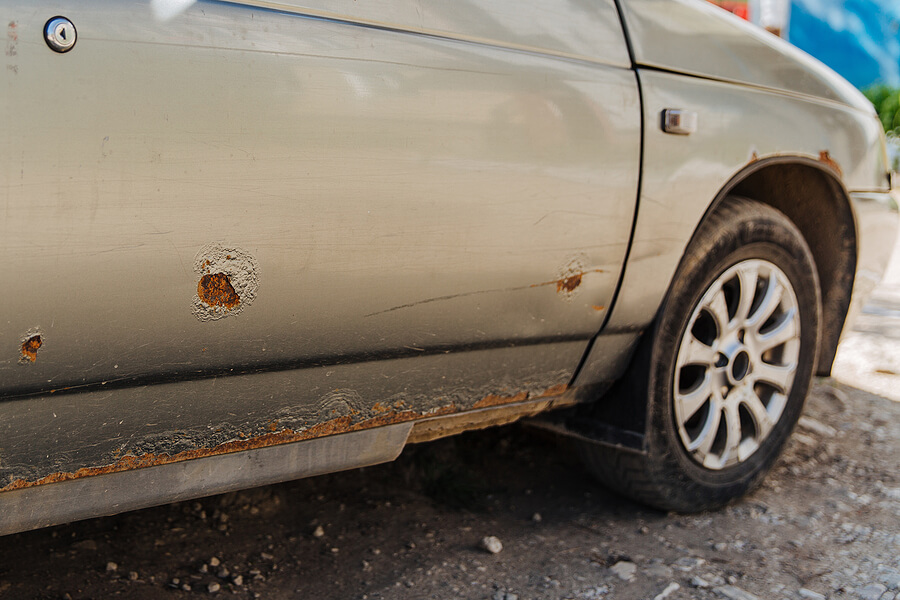This year, you might have found that you’ve not needed to use your car as much as previous years. With homeworking on the rise, how many times have you got behind the wheel?
Thousands of cars have been left parked out in the rain and recent colder elements. These weather conditions can cause a car to rust over time, especially with older models, and rust can ruin the overall aesthetic and functionality of your motor.

Bodywork:
Rusted bodywork on a car can be a sign of age, but there are ways it can be prevented with a little upkeep.
The main cause of rusted bodywork is water, which is difficult to prevent landing on your car if it is parked outdoors. However, if there is a build-up of dirt and grease on your car, the water will react with this and accelerate the corrosion process, causing rust to appear much faster than if the car was frequently cleaned.
Similarly, stone chips in the bodywork create crevices where water can penetrate the surface and corrode the surrounding areas faster.
To reduce the chance of a chip forming into a more significant rust patch, you should take your car to a detailer, who will use an abrasive polish to smooth the surface. After this, they will apply a clear coat to restore the paint, stopping any water from seeping deeper into the bodywork.
Rusted Alloy Wheels:
The wheels of your car are vulnerable to damage and scratches due to them being closest to the ground, kerbs and gravel that is kicked up from the road. For this reason, they are made from a more weather-resistant alloy metal than the rest of the car.
However, even alloy wheels are not impenetrable to corrosion and rust. Like the bodywork of your car, any existing scrapes or scratches to your alloy wheel are a weak point.
A common cause of dirt build-up on alloy wheels is brake dust, a stubborn residue that is created from the wear on brake pads. The residue then settles on the alloys while you are driving and creates a layer of dirt that is difficult to remove. This build-up of residue reacts with rainwater and enhances corrosion to the alloy wheels.
To clean your alloy wheels for rust prevention, we advise to remove the wheel from your car. This can be done using an impact wrench to remove the wheel nuts. Removing the wheel will allow you to clean both sides of your alloys, where many people only clean the outward facing side of the alloy. Failing to clean the inside of your alloys could make rust more susceptible as this area is most affected by brake dust.
Protecting your car from rust:
The paint of your car is especially vulnerable to rust over time. Though, there are ways to protect your car from the elements and provide a protective barrier from corrosion.
PPF, or paint protection film, is a type of vinyl wrap that can be applied to your car. This is not used to add a new stylish color, rather it is a clear material that will protect your car from scratches, chips and rain corrosion, the main causes of rust to cars.
Ceramic coating is a chemical that you can apply to exterior car panels. This provides a protective and undetectable layer on top of your paintwork to reduce damage to the paint.
Car wax can be applied to your car and is a cheap option to protect from rust. Like ceramic coating, car wax creates a hydrophobic layer on top of your paint, causing any water that comes into contact with it to roll off in beads. This way of essentially waterproofing your car will reduce the chances of water building up and forming rust.


